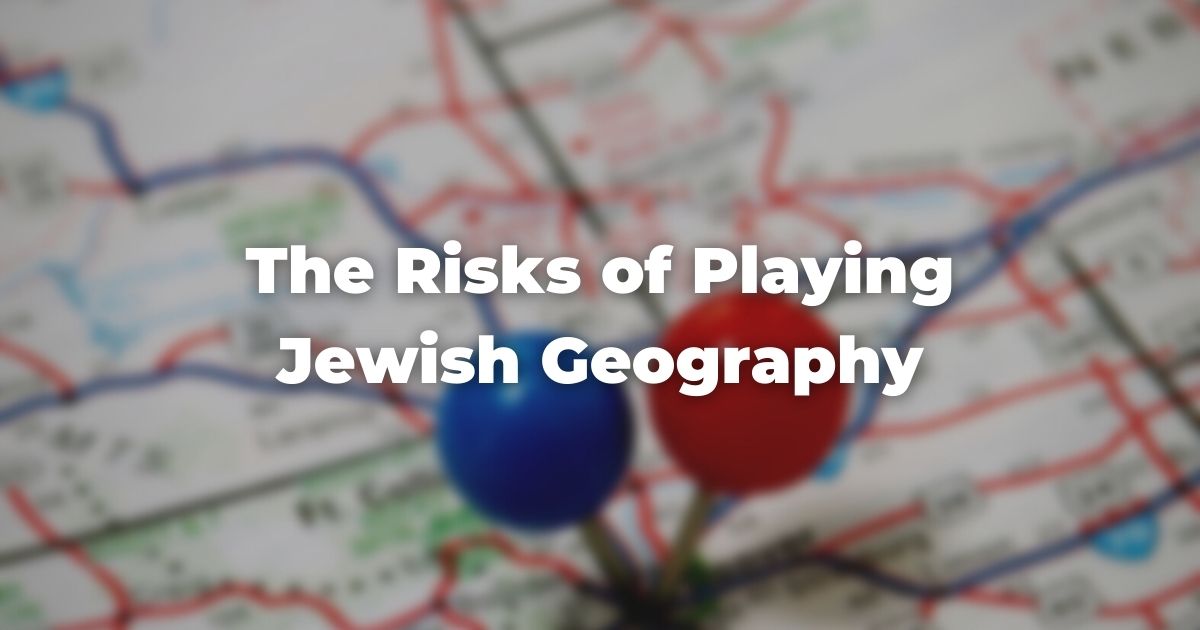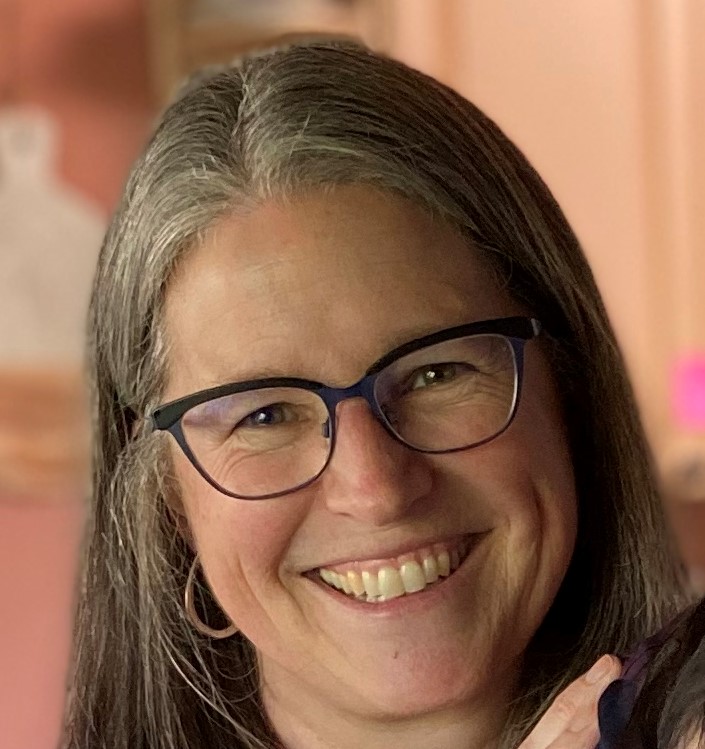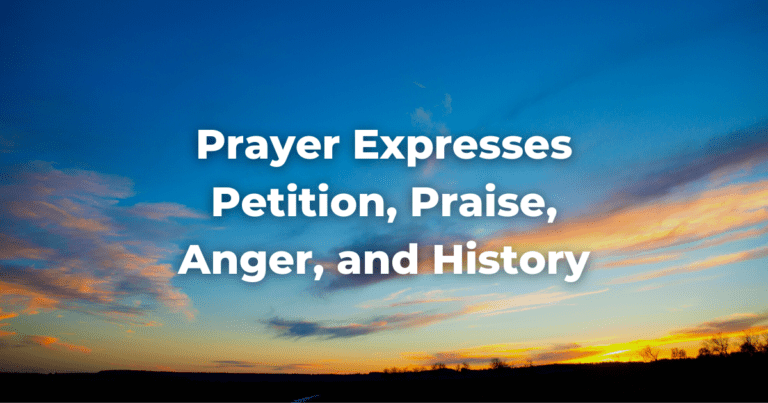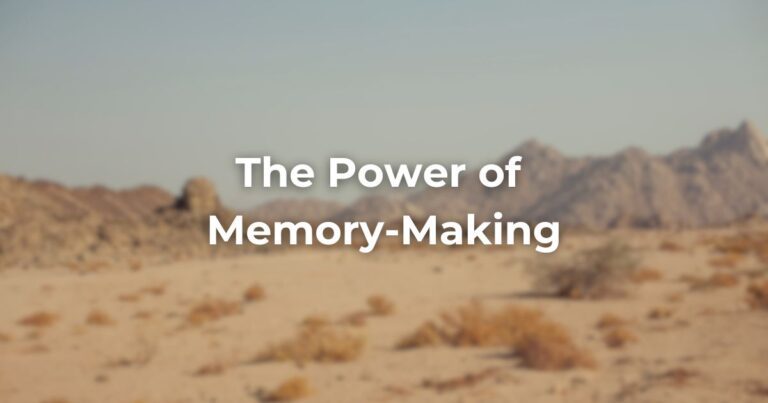Why does Judaism feel so insular at times?
In the fast-moving game of Jewish geography, you make connections with who you don’t know, by connecting through who you do know. But does the game really serve us well?
The Jewish Geography ricochet
You are sitting around a Friday night Shabbat dinner table. People begin asking, “Do you know so-and-so?” A ricochet of responses begins to fly. “Yes, of course, we went to Jewish summer camp together.” Or, “their sister works at my uncle’s law firm in Florida.” Those who quickly connect-the-dots, smile and laugh, feeling more connected to each other.
To those who can play, it feels good to know (or know of) so many people when we play this simple yet intricate game known as Jewish geography. But more than a game, Jewish geography is really a social ritual that many Jews fall into, especially those who share certain types of experiences.
There aren’t so many of us
It is easy to see how this social ritual developed: with a population of just over 15 million worldwide, that puts the Jewish world population at less than .2% of the 7.9 billion people on earth. Playing Jewish geography helps some of us feel less alone and more connected to those who identify as Jewish.
Sucking at Jewish geography
But as the web of connections multiply at that dinner table, some of us may have a gnawing feeling in our stomach, like, “I can’t play this game. I don’t know people like this. I didn’t grow up going to Jewish camp.”
What about those of us who converted to Judaism? What if you are “Jewish-adjacent?” Your partner might be Jewish, but you aren’t quite Jewish yourself?
How do you find something to hold on to in the rapid-fire conversation? Or do you even want to?
Genesis and Exodus Jews
Reflecting on different reactions to Jewish geography makes me think about a teaching by Rabbi Donniel Hartman about two different kinds of Jews: Genesis Jews and Exodus Jews.
Genesis Jews
In the book of Genesis, God singles out Abraham as the first Jew and makes a covenant with him:
“I will bestow My blessing upon you and make your descendants as numerous as the stars of the heaven and the sands on the seashore. . . All the nations of the earth shall bless themselves by your descendants. . .” (Genesis 22)
Genesis Judaism: we are family
But Abraham’s descendants don’t have to actually do anything to earn that blessing.
Simply because they are Abraham’s offspring, they get the blessing. Not surprisingly, there are a bunch of flawed characters in Genesis: Jacob steals Esau’s birthright, Jacob’s sons try to kill their brother Joseph. But it’s their blessing no matter what.
We Jews trace our spiritual identity back to Abraham. We too get that blessing without earning it just because we are family.
Exodus Jews
But the book of Exodus tells a different story. We stand at the foot of Mount Sinai and God speaks:
“You have seen what I did to the Egyptians, how I bore you on eagles’ wings and brought you to Me. Now then, if you will obey Me faithfully, and keep My covenant,. . . you shall be to Me a kingdom of priests and a holy nation.” (Exodus 18)
Exodus Judaism: You’ve got to do something
In Exodus, the covenant is conditional: “if you will obey.”
We have to earn the privilege of our Jewish identity. How? By remembering that first, we were slaves. Then we came to a promised land. But we must never forget what we learned when we were slaves: “You shall not wrong a stranger or oppress him, for you were strangers in the land of Egypt. (Ex 23:5).”
This value is our foundation for knowing how we should behave toward others. We aspire to this social ethic of empathy.
Who’s your family? Who do you know? What have you done to earn this?
Playing Jewish geography is one of the ultimate expressions of Genesis Judaism.
Genesis Judaism asks: Who’s your family? Who do you know? Many of us, just by being Jewish, have a network of social connections that feels almost effortless when we identify as being a part of an extended family.
But Exodus Judaism demands that we bring the social ethic of empathy with us wherever we go.
Exodus Judaism asks: What have you done to earn the privilege of Jewish identity? And that means remembering that not everyone was born into a Jewish family, went to Jewish summer camp, or engaged in Jewish life on campus.
There are so many lesser-known Jewish experiences that don’t necessarily make it into “Jewish geography.”
The Jewish Memory Bank
I, like so many in our Jewish communities, didn’t grow up Jewish. We didn’t accumulate a treasury of Jewish childhood memories, or didn’t know a lot of Jews where we went to college. It can be challenging, but bit by bit, we can build our Jewish memory bank, and eventually, Jewish geography might not feel so uncomfortable for us.
Rethinking Jewish Geography
But even so, playing Jewish geography actually isn’t so inclusive, and inclusivity is a sorely needed value in the Jewish community. If we excel at Jewish geography, we may want to consider how sharing our own treasure trove of Jewish experiences affects others.
How do we balance our identity as Genesis Jews (aka ‘We are family’) with our identity as Exodus Jews (aka ‘You have to do something)? Can our casual conversations reflect there are many paths to Jewish identity? That not all paths come through family? Or through tight-knit relationships extending over decades? How do we bring more of that ethic of empathy into our interactions with others?
Transform the Encounter
Just think what would happen if instead of asking people Genesis Jewish questions, like, “Where are you from?” we asked Exodus Jewish questions like, “Tell me about your connections to Judaism?”
We might just create a new Jewish social ritual: a ritual that just might not need any name at all.
Author
-

In Northern California, Susan was the first woman to be senior rabbi at a Conservative synagogue, Congregation Kol Shofar, and the first woman to be Associate Rabbi at Temple Beth Am, Los Angeles, following ordination at the Ziegler School of Rabbinic Studies. For The Institute for Jewish Spirituality, she leads virtual daily meditations, and is featured in their Waking Up to Blessing podcast and has taught Jewish spirituality at Zacharias Frankel College. On the Clergy Council of Roots, she works with Palestinians and Israelis living in the West Bank and serves on the Executive Council of the Rabbinical Assembly.
View all posts






